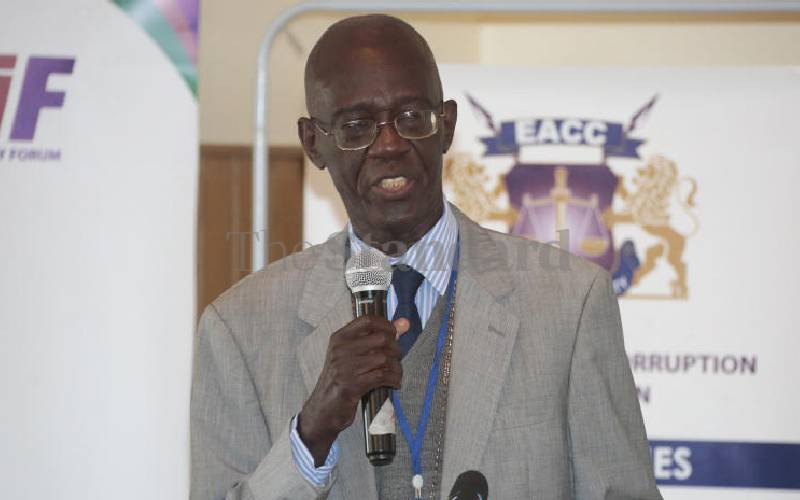×
The Standard e-Paper
Home To Bold Columnists

Former Kenyan Ethics and Anti-Corruption Commission (EACC) chairman Eliud Wabukala has called for cooperation among all agencies dealing with corruption, saying it is crucial to combat the scourge.
Speaking at the Desmond Tutu Conference Centre during the annual Anti-Corruption Dialogue, themed ''Do nothing out of selfish ambition, consider others first'', the cleric said: "Corruption is not just a Kenyan issue but a global one, akin to the Afghan gods that seem invincible."